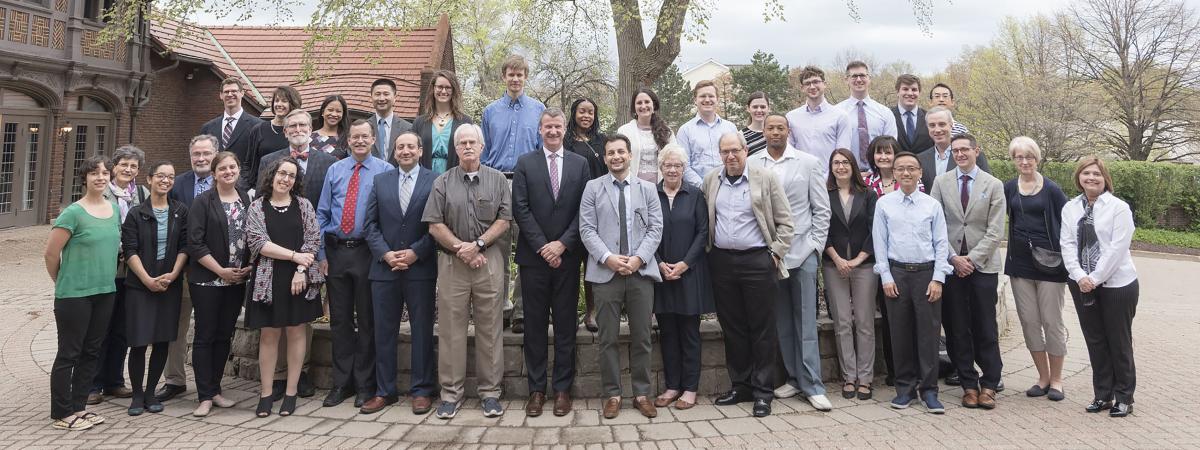Preparing a multidisciplinary group of clinical research scholars to be future leaders of the nation's clinical research enterprise is a key component of the National Center for Advancing Translational Science (NCATS) and the CTSA consortium.
The national CTSA Center for Leading Innovation & Collaboration (CLIC) offers DIAMOND, an online educational portal for shared competency-based educational offerings and assessments. DIAMOND demonstrates the utility of an e-portfolio system for individualized professional development planning and disseminates these educational offerings to broader audiences at research institutions across the United States.
Locally, this core resource is focused on education which includes graduate-degree-granting and post graduate programs in clinical and translational science, as well as a team science leadership program for mid- to senior-level scientists:
- Education and training for the entire clinical and translational research team to better understand each other's disciplines, terminology, and approach to research or patients by developing, implementing, and coordinating multidisciplinary clinical and translational research education across partner institutions. Program topics now include regulatory issues, statistics and design, and design.
- The CTSC KL2 Program is an intensive training and mentoring program designed to develop junior faculty members as clinical researchers conducting patient-oriented research. The KL2 program is comprised of scholars from various disciplines, from the 5 CTSC partner institutions.
- The CTSC T32 program is a grant-supported Clinical and Translational Scientist Training Program for Postdoctoral Researchers aims to develop Clinical/Translational scientists with skills for interdisciplinary work, ability to work across disciplines, and ability to envision and design advances in clinical and community settings.
- The ATLAS program is a year-long training program for both mid-career and senior investigators doing clinical or translational research. The goals of ATLAS are to increase collaboration among the partnering institutions and equip investigators with skills to lead team science.


